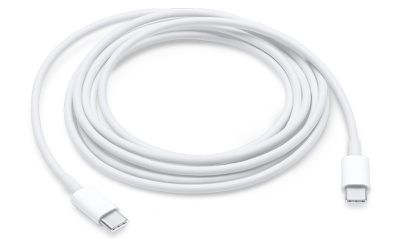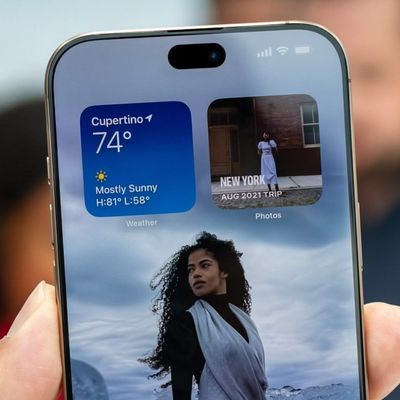USB4 Version 2.0 to Offer 80Gb/s Transfer Speeds
USB4 Version 2.0 is in the works and when launched, it will allow for double the speeds of the current USB4 specification with existing USB-C cables. It will support up to 80Gb/s operation with both 40Gb/s USB-C passive cables and newly defined 80Gb/s active cables.

The updated specification was announced today by the USB Promoter Group, comprising Apple, Microsoft, Intel, HP, STM, and others. USB Type-C and USB Power Delivery specifications will be updated to enable the higher level of data performance, and updates are being made to enable higher performance USB 3.2, DisplayPort, and PCIe data tunneling to better take advantage of the bandwidth improvement.
As outlined in the announcement, the updated USB4 specification will include the following:
- Up to 80 Gbps operation, based on a new physical layer architecture, using existing 40 Gbps USB Type-C passive cables and newly-defined 80 Gbps USB Type-C active cables.
- Updates to data and display protocols to better use the increase in available bandwidth.
- USB data architecture updates now enable USB 3.2 data tunneling to exceed 20 Gbps.
- Updated to align with the latest versions of the DisplayPort and PCIe specifications.
- Backward compatibility with USB4 Version 1.0, USB 3.2, USB 2.0 and Thunderbolt 3.
The USB Promoter Group says that the updated specifications are expected to be published ahead of the USB DevDays developer events that are planned for November. The update is targeting developers at this time, with branding and marketing guidelines to be updated at a future date to include USB 80Gb/s for identifying certified products and cables.
Popular Stories
In addition to updating many of its existing products, Apple is expected to unveil five all-new products this year, including a smart home hub, a Face ID doorbell, a MacBook with an A18 Pro chip, a foldable iPhone, and augmented reality glasses.
Below, we have recapped rumored features for each product.
Smart Home Hub
Apple home hub (concept)
Apple's long-rumored smart home hub should...
Apple is planning to debut a high-end secondary version of AirPods Pro 3 this year, sitting in the lineup alongside the current model, reports suggest.
Back in September 2025, supply chain analyst Ming-Chi Kuo reported that Apple is planning to introduce a successor to the AirPods Pro 3 in 2026. This would be somewhat unusual since Apple normally waits around three years to make major...
Apple is working on a small, wearable AI pin equipped with multiple cameras, a speaker, and microphones, reports The Information. If it actually launches, the AI pin will likely run the new Siri chatbot that Apple plans to unveil in iOS 27.
The pin is said to be similar in size to an AirTag, with a thin, flat, circular disc shape. It has an aluminum and glass shell, and two cameras at the...
Over the last few months, rumors around the iPhone 18 Pro's front-panel design have been conflicted, with some supply-chain leaks pointing to under-display Face ID, reports suggesting a top-left hole-punch camera, and debate over whether the familiar Dynamic Island will shrink, shift, or disappear entirely.
Today, Weibo-based leaker Instant Digital shared new details that appear to clarify the ...
The Apple supplier subject to a major cyberattack last month was China's Luxshare, it has now emerged. More than 1TB of confidential Apple information was reportedly stolen.
It was reported in December that one of Apple's assemblers suffered a significant cyberattack that may have compromised sensitive production-line information and manufacturing data linked to Apple. The specific company...





















